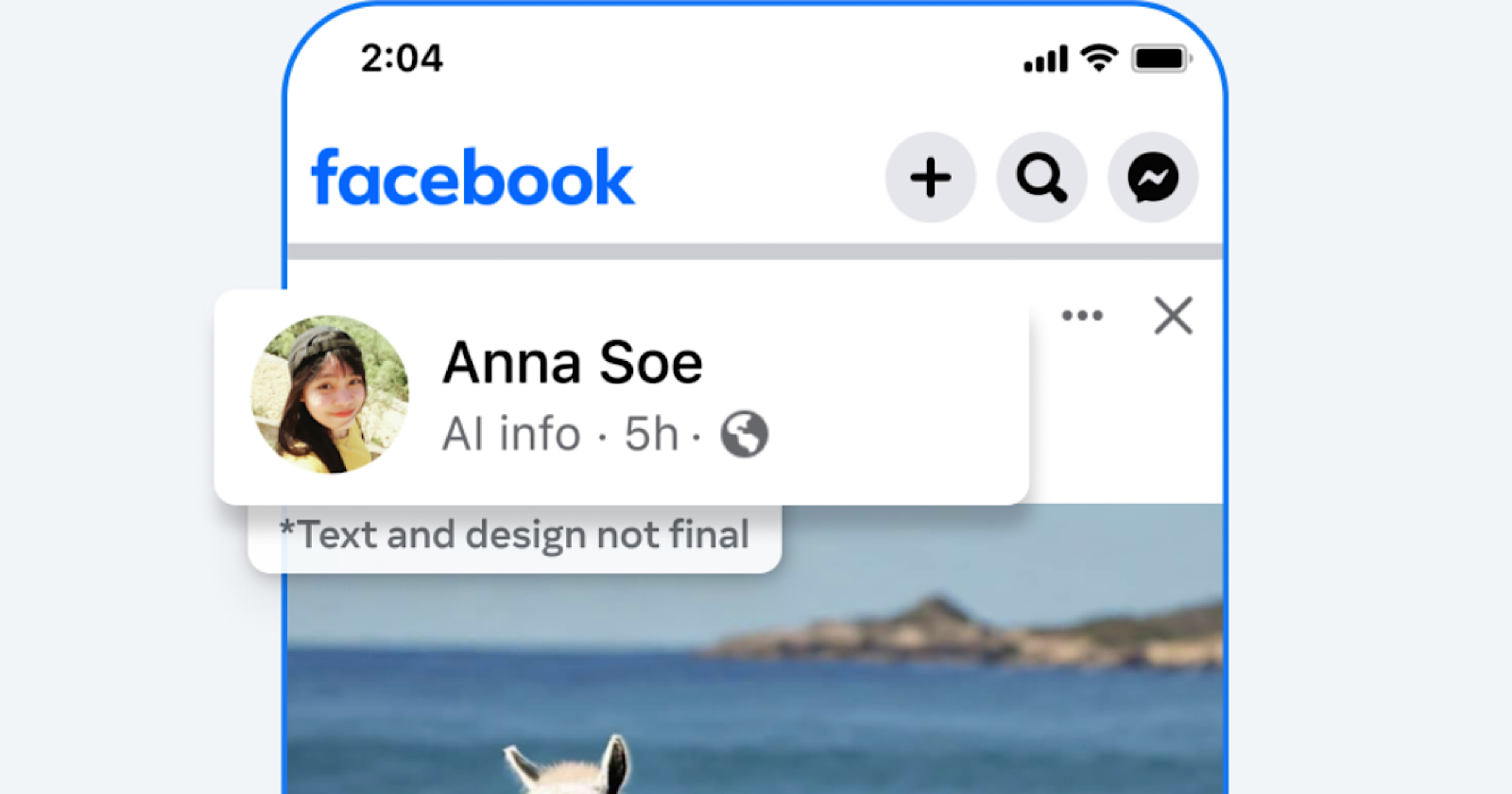Meta announced it will start labeling images created by AI across Facebook, Instagram, and Threads in the coming months.
The move comes as AI image generation tools grow in popularity, making distinguishing human-made and AI-created content harder.
“As the difference between human and synthetic content gets blurred, people want to know where the boundary lies,” states Nick Clegg, President of Global Affairs at Meta.
Upcoming Features & Expectations
Meta plans to start labeling AI-generated images in multiple languages on its platforms over the next few months.
This move comes during major elections worldwide, when knowing the source of content is especially important.
Meta will employ various techniques to differentiate AI-generated images from other images. These include visible markers, invisible watermarks, and metadata embedded in the image files.
Additionally, Meta is implementing new policies requiring users to disclose when media is generated by artificial intelligence, with consequences for failing to comply.
Meta’s methods follow best practices recommended by the Partnership on AI (PAI), an industry group focused on responsible AI development.
Looking Ahead
Over the next 12 months, Meta will closely monitor user engagement with labeled AI content. These insights will shape the platform’s long-term strategy.
Currently, Meta manually labels images created through its internal AI image generator with disclosures like “Imagined by AI.” Now, the company will leverage its detection tools to label AI content from other providers like Google, Microsoft, Adobe, and leading AI art platforms.
In the interim, Meta advises users to critically evaluate accounts sharing images and watch for visual inconsistencies that may reveal computer generation.
Key Takeaways
Here are some key takeaways for businesses and social media marketers based on Meta’s announcement:
- Authenticity and transparency will be crucial as AI image creation goes mainstream. Businesses should consider proactive disclosures if using AI-generated content in marketing.
- Two camps may emerge – those who embrace AI creations and those who value “human-made” content. Brands should understand what their audience prefers.
- With proper labeling, synthetic content may not negatively impact trust. However, marketers should closely monitor user sentiment surrounding AI usage.
AI could become a powerful marketing asset for content creation at scale, but ethical AI development is advised. Rushing to use immature technologies could backfire.
Interest in synthetic media detection tools, digital watermarking, and metadata standards will likely surge. Savvy marketers should stay on top of these technologies.
Meta’s approach hints at a measured transition, but swift change is likely. Marketers can stay ahead by preparing flexible creative and compliance strategies for synthetic content.
Featured Image: Screenshot from about.fb.com/news/, February 2024.
